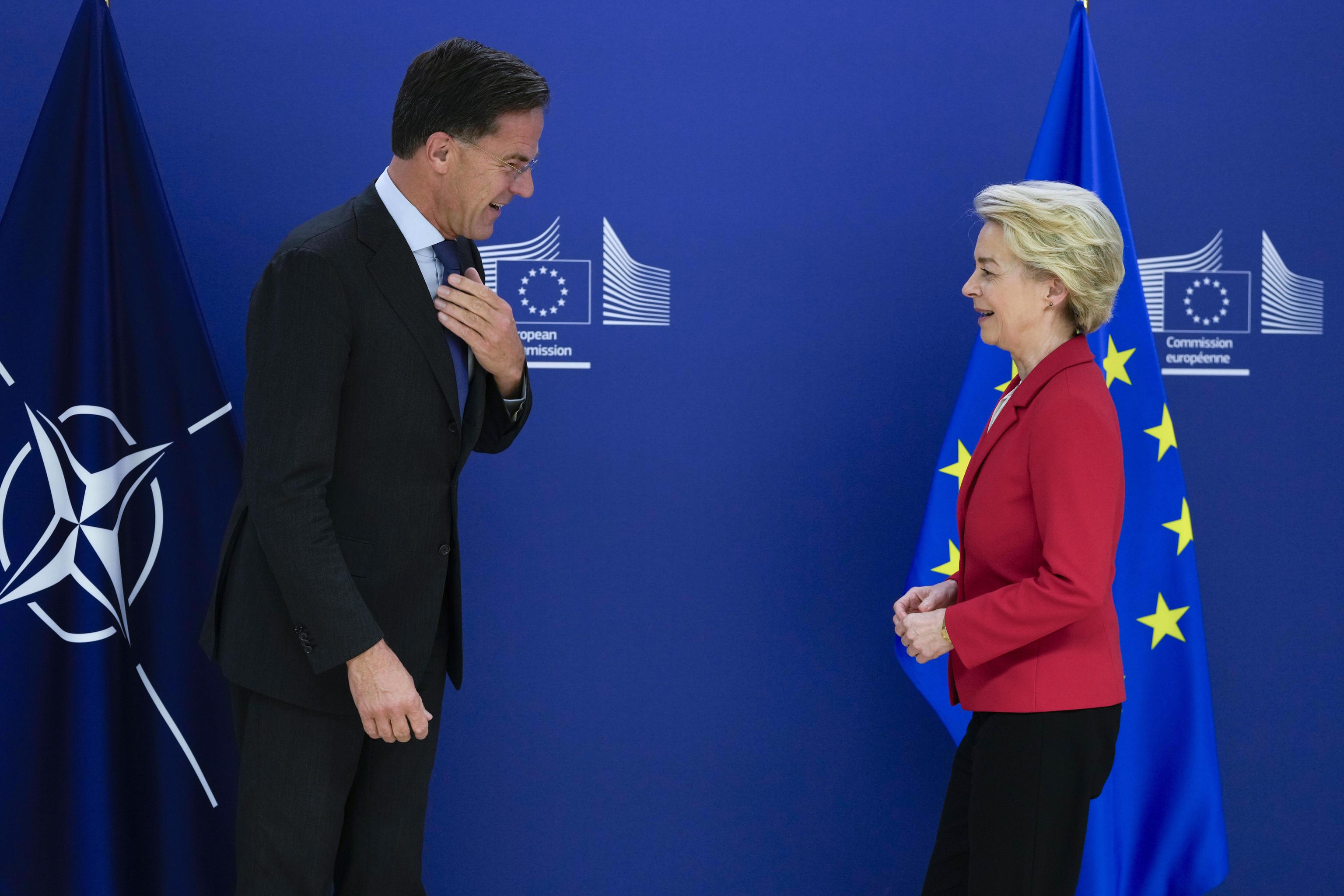"A threat to world peace." This is what the European Commission and NATO consider the deployment of troops by North Korea to fight alongside Russia in the war in Ukraine, which only confirms what Volodymyr Zelensky himself warned about in Brussels earlier this month. "One step closer to world war," stated the Ukrainian president after meeting with European leaders.
The initial reaction from both the EU and NATO to these words was cautious, always speaking in conditional terms. "If the deployment of troops is confirmed," "it would be" or "it would provoke" were the terms used. But now the tone has hardened significantly, and today several events have unfolded showing that the concern in the European capital is very significant. There is fear, indeed.
Because in the first joint meeting held by European Commission President Ursula von der Leyen and the new Secretary-General of the North Atlantic Treaty Organization, Mark Rutte, which took place this Tuesday, they both agreed and published on their respective social media profiles a reference to a possible major international war.
"Their conversation focused on the importance of a close and strategic alliance between the European Union and the Atlantic Alliance. They both agreed that, in an increasingly dangerous world, this alliance is essential to promote and protect peace, freedom, and prosperity. Russia's aggressive war on European soil constitutes the greatest threat to peace," begins the joint statement from the two organizations based in Brussels.
And it continues. "President Von der Leyen and Secretary-General Rutte emphasized that the deployment of North Korean soldiers in support of Russia's aggressive war represents a significant escalation of the war against Ukraine, as well as a serious threat to European security and world peace."
Additionally, sources from the Commission have also confirmed today that Josep Borrell, the High Representative of the Union for Foreign Affairs and Security Policy, will travel to Seoul to discuss the deployment of North Korea with its southern neighbors. Specifically, he will meet next Monday with his South Korean counterpart, Yoon Suk Yeol, after meeting on Friday with the Japanese Foreign Minister, Takeshi Iwaya.
These two meetings were already on the agenda of the European diplomatic representative, but in the European capital, they emphasize that the escalation represented by the deployment of up to 12,000 elite North Korean soldiers has completely changed the purpose of the meetings and will undoubtedly be the main issue to address. "The European Union is deeply alarmed by reports that North Korea is sending troops to participate in Russia's illegal aggressive war against Ukraine," Borrell pointed out last week.
In European terms, the use of "deeply" is reserved for situations where there is indeed a very high level of concern. It is not used lightly. And if it wasn't clear enough, the High Representative added that the deployment of troops "would constitute a serious violation of international law, including the most fundamental principles of the United Nations Charter," and that these events "once again demonstrate how Russia is spreading instability and escalating tensions in the region and worldwide."
Borrell has also been warning for weeks that a "major international conflict" could occur. He did so in reference to the goal of Israeli President Benjamin Netanyahu, before the deployment of troops by Kim Jong-un in support of Vladimir Putin was known, which only reinforces that warning. Ukraine, Russia, North Korea, Israel, Iran twice, Lebanon, and the Gaza Strip. Many territories in armed conflicts, at war, and many crossed interests also involving the United States and its next president or president, China, and the European Union itself.
